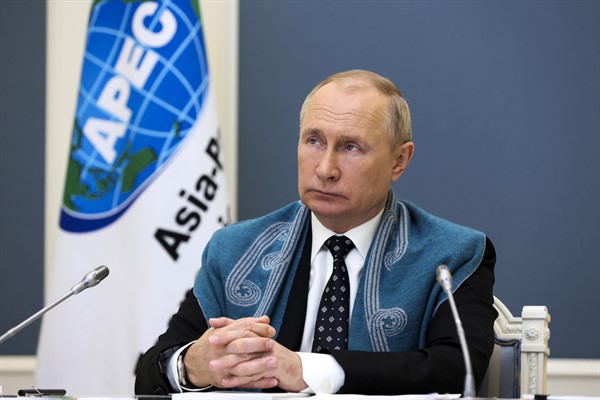Three decades after the collapse of the Soviet Union, Russia has reestablished itself as a force to be reckoned with on the global stage, intervening forcefully not only in former Soviet republics on its periphery, but also in global hotspots like Syria and Libya. Despite Russia’s resurgence, some Western leaders have a noticeable tendency to dismiss it as an overrated, overhyped power. John McCain, the late U.S. senator, famously quipped that Russia is a “gas station masquerading as a country.” U.S. President Joe Biden may have been channeling McCain when he said in July that Russian President Vladimir Putin is “sitting on top of an economy that has nuclear weapons and oil wells and nothing else.”
In a recently published book entitled “Russia Resurrected: Its Power and Purpose in a New Global Order,” Kathryn Stoner, a specialist on Russia at Stanford University, challenges the conventional view of Moscow as a weak and declining power, arguing that assessing Russian capabilities requires looking beyond traditional metrics of power. She joins WPR’s Elliot on the Trend Lines podcast this week.
To request a full transcript of the episode, please send an email to podcast@worldpoliticsreview.com.
Listen:
Download: MP3
Relevant Articles on WPR:
Putin’s Big Plans for Russia’s Far East Aren’t Panning Out
Afghanistan Will Put Russia’s Regional Ambitions to the Test
Like It or Not, Biden Will Have to Live With Russia’s Energy Exports
For the U.S. and Russia, ‘Stable and Predictable’ Would Be a Good Start
Trend Lines is edited by Peter Dörrie, a freelance journalist and analyst focusing on security and resource politics in Africa. You can follow him on Twitter at @peterdoerrie.
To send feedback or questions, email us at podcast@worldpoliticsreview.com.




